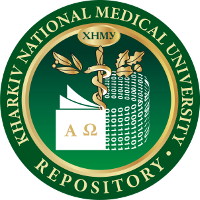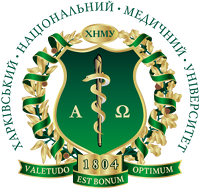Будь ласка, використовуйте цей ідентифікатор, щоб цитувати або посилатися на цей матеріал:
http://repo.knmu.edu.ua/handle/123456789/5827| Назва: | Colorectal cancer treatment |
| Автори: | Isaac, Adaora Kochubiei, Oksana |
| Теми: | сolon cancer treatment |
| Дата публікації: | кві-2014 |
| Видавництво: | KhNMU |
| Бібліографічний опис: | Isaac Precious Adaora. Colorectal cancer treatment / Adaora Precious Isaac, О. Kochubiei // Evolution of examination methods in pulmonology, gastroenterology, and nephrology. : internetional scientific student’s conference, Kharkiv, 1 of April 2014 : abstract book. – Kharkiv : KhNMU, 2014. – Р. 14–15. |
| Короткий огляд (реферат): | Colon, or colorectal, cancer is cancer that starts in the large intestine (colon) or the rectum (end of the colon). Colorectal cancer treatment involves not only specific therapies for curing or controlling the disease, but also strategies for meeting a patient's emotional and physical needs The main types of treatment for colorectal cancer are surgery, radiation therapy, and chemotherapy. Depending on the stage of the cancer, these treatments may be combined. Surgery is the most effective treatment for local colorectal tumors. Very small tumors can be removed through a colonoscope, but even with small tumors, removing the portion of the colon containing the tumor, the surrounding fat, and nearby lymph nodes is often the best treatment. Radiation therapy is treatment with high-energy rays that destroy the cancer cells. For rectal cancer, radiation is usually given after surgery, along with chemotherapy (known as adjuvant therapy), in order to destroy any cancer cells left behind. For patients with stage IV disease that has spread to the liver, treatments directed at the liver can be used. This may include: Burning the cancer (ablation), delivering chemotherapy or radiation directly into the liver, freezing the cancer (cryotherapy), surgery. Chemotherapy drugs are used to treat various stages of colorectal cancer. They include 5-flurouracil, Xeloda, Camptosar, and Eloxatin. These drugs are commonly used in combination with one another. Chemotherapy is also used to improve symptoms and prolong survival in patients with stage IV colon cancer. Monoclonal antibodies, including cetuximab (Erbitux), panitumumab (Vectibix), bevacizumab (Avastin), and other drugs have been used alone or in combination with chemotherapy. You may receive just one type, or a combination of these drugs. There is some debate as to whether patients with stage II colon cancer should receive chemotherapy after surgery. You should discuss this with your oncologist. |
| Опис: | Colon, or colorectal, cancer is cancer that starts in the large intestine (colon) or the rectum (end of the colon). Colorectal cancer treatment involves not only specific therapies for curing or controlling the disease, but also strategies for meeting a patient's emotional and physical needs The main types of treatment for colorectal cancer are surgery, radiation therapy, and chemotherapy. Depending on the stage of the cancer, these treatments may be combined. Surgery is the most effective treatment for local colorectal tumors. Very small tumors can be removed through a colonoscope, but even with small tumors, removing the portion of the colon containing the tumor, the surrounding fat, and nearby lymph nodes is often the best treatment. Radiation therapy is treatment with high-energy rays that destroy the cancer cells. For rectal cancer, radiation is usually given after surgery, along with chemotherapy (known as adjuvant therapy), in order to destroy any cancer cells left behind. For patients with stage IV disease that has spread to the liver, treatments directed at the liver can be used. This may include: Burning the cancer (ablation), delivering chemotherapy or radiation directly into the liver, freezing the cancer (cryotherapy), surgery. Chemotherapy drugs are used to treat various stages of colorectal cancer. They include 5-flurouracil, Xeloda, Camptosar, and Eloxatin. These drugs are commonly used in combination with one another. Chemotherapy is also used to improve symptoms and prolong survival in patients with stage IV colon cancer. Monoclonal antibodies, including cetuximab (Erbitux), panitumumab (Vectibix), bevacizumab (Avastin), and other drugs have been used alone or in combination with chemotherapy. You may receive just one type, or a combination of these drugs. There is some debate as to whether patients with stage II colon cancer should receive chemotherapy after surgery. You should discuss this with your oncologist. |
| URI (Уніфікований ідентифікатор ресурсу): | https://repo.knmu.edu.ua/handle/123456789/5827 |
| Розташовується у зібраннях: | Наукові роботи молодих вчених. Кафедра пропедевтики внутрішньої медицини № 2 та медсестринства |
Файли цього матеріалу:
| Файл | Опис | Розмір | Формат | |
|---|---|---|---|---|
| Isaac Precious Adaora.doc | 26,5 kB | Microsoft Word | Переглянути/відкрити |
Усі матеріали в архіві електронних ресурсів захищені авторським правом, всі права збережені.

